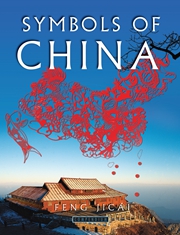Copyright Law of the People's Republic of China
(Adopted at the Fifteenth Session of the Standing Committee of the Seventh National People's Congress on 7 September 1990, and revised in accordance with the Decision on the Amendment of the Copyright Law of the People's Republic of China adopted at the 24th Session of the Standing Committee of the Ninth National People's Congress on 27 October 2001.)
Chapter I General Provisions
Article 1 This Law is enacted, in accordance with the Constitution, for the purposes of protecting the copyright of authors in their literary, artistic and scientific works and the copyright-related rights and interests, of encouraging the creation and dissemination of works which would contribute to the construction of socialist spiritual and material civilization, and of promoting the development and prosperity of the socialist culture and science.
Article 2 Works of Chinese citizens, legal entities or other organizations, whether published or not, shall enjoy copyright in accordance with this Law.
Any work of a foreigner or stateless person which is eligible to enjoy copyright under an agreement concluded between the country to which the foreigner belongs or in which he has habitual residence and China, or under an internationa1 treaty to which both countries are party, shall be protected in accordance with this Law.
Works of foreigners or stateless persons first published in the territory of the People's Republic of China shall enjoy copyright in accordance with this Law.
Any work of a foreigner who belongs to a country which has not concluded an agreement with China, or which is not a party to an international treaty with China or a stateless person first published in an country which is a party to an international treaty with China, or in such a member state or nonmember state, shall be protected in accordance with this Law.
Article 3 For the purposes of this Law, the term "works" includes works of literature, art, natural science, social science, engineering technology and the like which are expressed in the following forms:
(1) written works;
(2) oral works;
(3) musical, dramatic, quyi', choreographic and acrobatic works;
(4) works of fine art and architecture;
(5) photographic works;
(6) cinematographic works and works created by virtue of an analogous method of film production;
(7) drawings of engineering designs, and product designs; maps, sketches and other graphic works and model works;
(8) computer software;
(9) other works as provided for in laws and administrative regulations.
Article 4 Works the publication or distribution of which is prohibited by law shall not be protected by this Law.
Copyright owners, in exercising their copyright, shall not violate the Constitution or laws or prejudice the public interests.
Article 5 This Law shal1 not be applicable to:
(l) laws; regulations; resolutions, decisions and orders of State organs; other documents of a legislative, administrative or judicial nature; and their official translations;
(2) news on current affairs; and
(3) calendars, numerical tables and forms of general use, and formulas.
Article 6 Regulations for the protection of copyright in expressions of folklore shall be established separately by the State Council.
Article 7 The copyright administration department under the State Council shall be responsible for the nationwide administration of copyright. The copyright administration department of the People's Government of each province, autonomous region and municipality directly under the Central Government shall be responsible for the administration of copyright in its administrative region.
Article 8 The copyright owners and copyright-related right holders may authorize an organization for collective administration of copyright to exercise the copyright or any copyright-related right. After authorization, the organization for collective administration of copyright may, in its own name, claim the right for the copyright owners and copyright-related right holders, and participate, as an interested party, in litigation or arbitration relating to the copyright or copyright-related right. The organization for collective administration of copyright is a non-profit organization. Provisions for the mode of its establishment, rights and obligations, collection and distribution of the royalties of copyright licensing, and supervision and administration thereof shall be separately established by the State Council.
-

Symbols of Jiangsu (Pocket Edition)
Non-FictionSymbols of Jiangsu (Pocket Edition) selects the most representative and symbolic Jiangsu special cultural resources.
-

Symbols of China
Humanities & Social Science; Non-FictionSymbols of China examines those things that make China Chinese.



